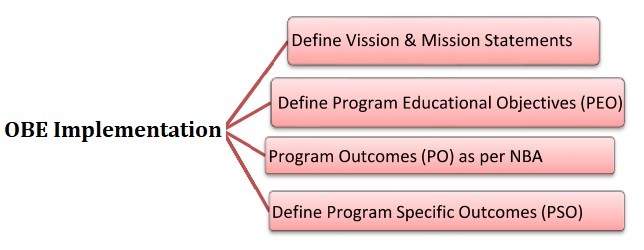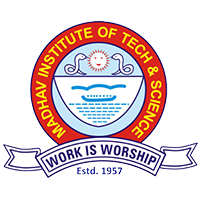|
|
|
View |
|
View | |
|
View | |
|
|
|
View |
|
View | |
|
View | |
|
View | |
|
Departmental Schedule of Induction Program 2025 (18 to 20 August) |
|
View |
|
View | |
|
Minor-1 Examination Marks (Theory+Lab) (II Semester) [Jan.-June 2025] |
|
View |
|
View | |
|
Mid-sem 2 Examination Marks (Internet of Things [IoT]) [July-Dec 2024] |
|
Download |
|
Download | |
|
Download | |
|
Mid-sem 2 Examination Marks (Internet of Things) [July-Dec 2024] |
|
Download |
|
Download | |
|
Download | |
|
Mid-sem 1 Examination Marks (Internet of Things) [July-Dec 2024] |
|
Download |
|
Download | |
|
Download | |
|
Mid-sem 1 Examination Marks (Internet of Things [IOT]) [July-Dec 2024] |
|
Download |
|
Download | |
|
Download | |
|
Mandatory Audit Course (End Semester April 2024) [Seating Plan] (Internet of Things and Internet of Things [IOT]) |
|
Download |
|
Download | |
|
Download | |
|
Mid-sem 1 Examination Marks (Internet of Things) [Jan.-June 2024] |
|
Download |
|
Download | |
|
Download | |
|
Mid-sem 1 Examination Marks (Internet of Things [IOT]) [Jan.-June 2024] |
|
Download |
|
Download | |
|
Download | |
|
Mid-sem Examination Marks (Internet of Things) [July-Dec 2023] |
|
Download |
|
Download | |
|
Download |
|
[Session 2023-24] |
|
[Session 2020-24] |
|
[Session 2023-24] |
|
[Session 2023-24] |
Program Outcomes (POs)
- PO1 Engineering knowledge: Apply the knowledge of mathematics, science, engineering fundamentals, and an engineering specialization to the solution of complex engineering problems.
- PO2 Problem analysis: Identity, formulate, review research literature, and analyze complex engineering problems reaching substantiated conclusions using first principles of mathematics, natural sciences, and engineering sciences.
- PO3 Design/development of solutions: Design solutions for complex engineering problems and design system components or processes that meet the specified needs with appropriate consideration for public health and safety, and the cultural, societal, and environmental considerations.
- PO4 Conduct investigations of complex problems: Use research-based knowledge and research methods including design of experiments, analysis, and interpretation of data, and synthesis of the information to provide valid conclusions.
- PO5 Modern tool usage: Create, select, and apply appropriate techniques, resources, and modern engineering and IT tools including prediction and modelling to complex engineering activities with an understanding of the limitations.
- PO6 The engineer and society: Apply reasoning informed by the contextual knowledge to assess societal, health, safety, legal and cultural issues and the consequent responsibilities relevant to the professional engineering practice.
- PO7 Environment and sustainability: Understand the impact of professional engineering solutions in societal and environmental contexts, and demonstrate the knowledge of, and need for sustainable development.
- PO8 Ethics: Apply ethical principles and commit to professional ethics and responsibilities and norms of the engineering practice.
- PO9 Individual and team work: Function effectively as an individual, and as a member or leader in diverse teams, and in multidisciplinary settings.
- PO10 Communication: Communicate effectively on complex engineering activities with the engineering community and with society at large, such as being able to comprehend and write effective reports and design documentation, make effective presentations, and give and receive clear instructions.
- PO11 Project management and finance: Demonstrate knowledge and understanding of the engineering and management principles and apply these to one’s own work, as a member and Leader in a team, to manage projects and in multidisciplinary environments.
- PO12 Life-long learning: Recognize the need for, and have the preparation and ability to engage in independent and life-long learning in the broadest context of technological change.
Program Specific Outcomes (PSOs)
B.Tech in Internet of Things
- PSO-1
- PSO-2
B.Tech in Internet of Things (IOT)
- PSO-1
- PSO-2
Programme Educational Objectives (PEOs)
- PEO-I:
- PEO-II:
- PEO-III:
OBE Philosophy

Some important aspects of Outcome Based Education:
- Course Outcome (CO): Course outcomes are statements that describe significant and essential learning that learners have achieved, and can reliably demonstrate at the end of a course. Generally, three or more course outcomes may be specified for each course based on its weightage.
- Programme Outcomes (POs): Program outcomes are narrower statements that describe what students are expected to be able to do by the time of graduation. POs are expected to be aligned closely with Graduate Attributes.
- Program Educational Objectives (PEOs): The Programme Educational Objectives of a program are the statements that describe the expected achievements of graduates in their career, and also in particular, what the graduates are expected to perform and achieve during the first few years after graduation.
- Programme Specific Outcomes (PSOs): Programme Specific Outcomes are what the students should be able to do at the time of graduation with reference to a specific discipline. Usually, there are two to four PSOs for a programme.









